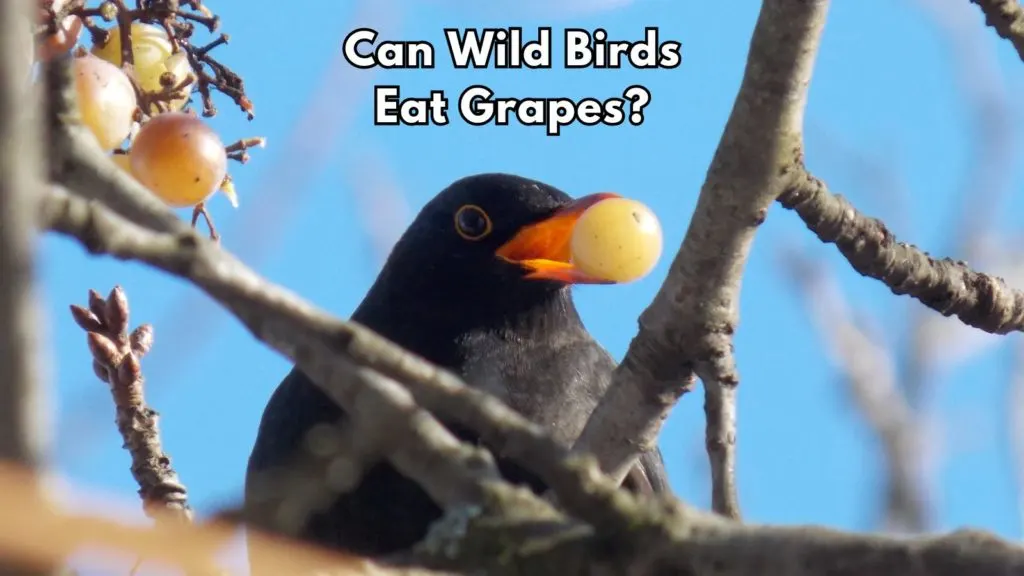Whether you have wild grapes growing in your yard or you’re considering putting out grapes at your feeder, you might wonder, “Can birds eat grapes?” Understanding the dietary needs of wild birds is crucial, especially when it comes to supplementing their diet with fruits like grapes. Let’s dive into what you need to know about feeding grapes to your feathered visitors–and a precaution you might need to consider.

Nutritional Value of Grapes for Birds
Grapes, both wild and cultivated, can be a nutritious snack for many bird species!
Rich in vitamins, especially Vitamin C, and packed with hydration, they can offer a quick energy boost.
Compared to traditional bird foods like seeds and nuts, grapes provide a different set of nutrients, making them a great supplement to the natural foraging diet of birds.
Wild grapes provide vital nutrients and a source of energy for birds, especially during migration periods when they require additional calories. These fruits are rich in sugars, which offer a quick energy boost, and they also contain essential vitamins and minerals beneficial for birds.
Which Bird Species Enjoy Grapes?
You’ll find that a variety of bird species, including robins, jays, and even some woodpeckers, are quite fond of grapes. Many bird species, including robins, cardinals, and waxwings, enjoy feasting on wild grapes.
These birds are naturally drawn to the sweet taste and can often be observed pecking at grapes in vineyards or gardens. If you have grapes growing in your yard or plan to put them out, watch for these species showing particular interest.
Preparing Grapes for Wild Birds
If you decide to feed grapes to birds, it’s important to prepare them correctly. Cut the grapes in half to make them easier for birds to eat and to prevent any choking hazard, especially for smaller birds.
Always ensure the grapes are free from pesticides, as these can be harmful to birds. Remember, moderation is key – grapes should be a treat, not a staple in their diet.
If you’re growing grapes in your yard, be mindful of any treatments you use on the vines.
Potential Risks and Precautions
Do you have a dog with access to the area where you feed the birds? If so, do NOT allow your dog access to grapes that you may be feeding the birds.
It’s crucial for dog owners to be aware that grapes, along with raisins, are extremely toxic to dogs. Even a small amount can cause sudden kidney failure in susceptible dogs.
Symptoms of grape or raisin toxicity in dogs include vomiting, lethargy, dehydration, and a lack of appetite. In severe cases, it can lead to increased urination followed by decreased or no urination, and can be fatal. Therefore, it’s safest to keep these fruits completely out of reach of your canine companions, and if ingestion does occur, contact your veterinarian or an emergency animal clinic immediately.
Other Alternatives to Grapes
There are plenty of other fruit options if you’re looking to diversify the diet of your backyard birds. Apples, berries, oranges and bananas are all safe choices. Just like with grapes, ensure these are served in bird-friendly portions and are free from harmful chemicals.
More Posts You Might Like
- What Does a Seagull Symbolize? - April 20, 2024
- Can Birds Eat Avocado? - April 20, 2024
- Can Birds Eat Muesli? - April 20, 2024
